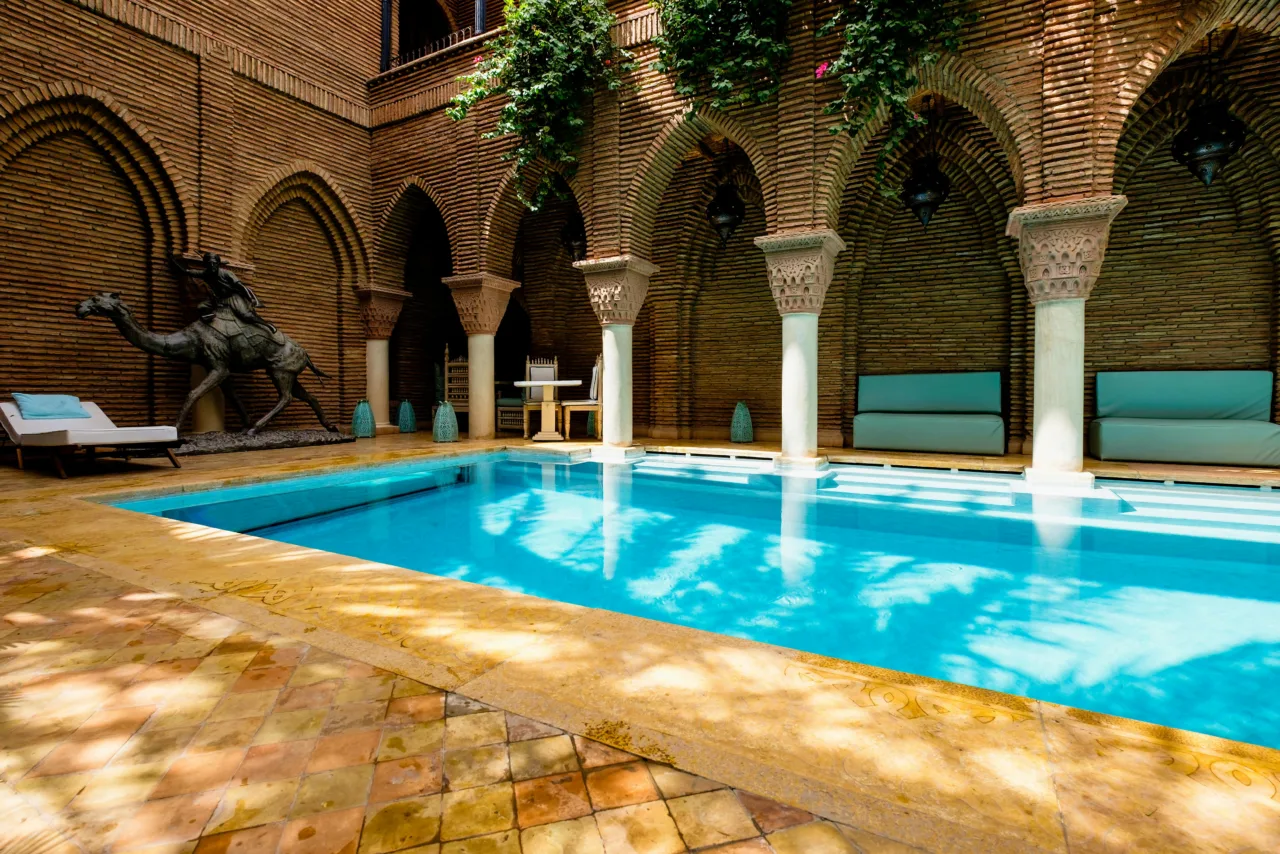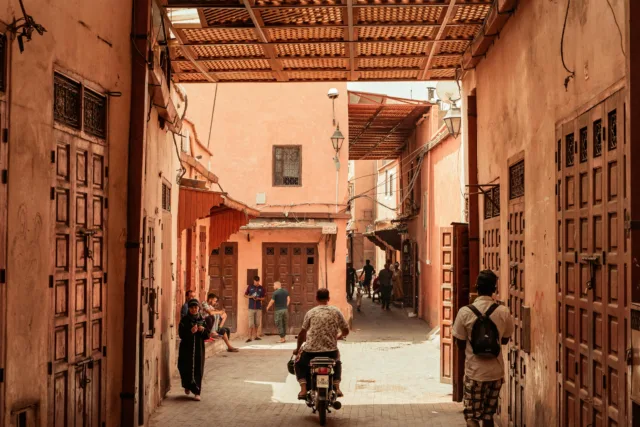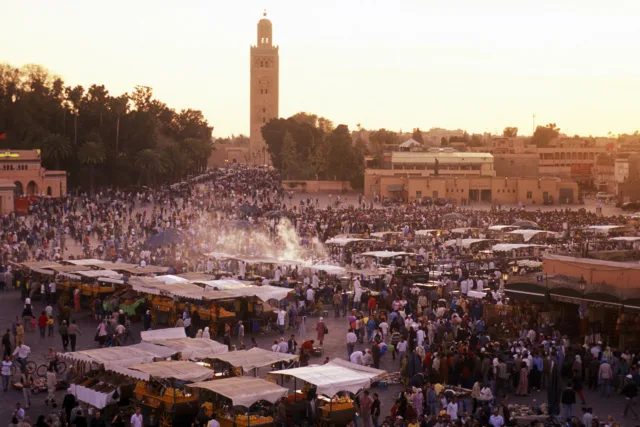
Buying Property in Morocco as a European Investor: 2025 Guide
Buying property in Morocco has become increasingly popular among European investors looking for affordable real estate, strong rental yields, and long-term growth. From luxury villas in Marrakech to seaside apartments in Agadir, Morocco offers a diverse property market that blends cultural richness with attractive investment opportunities. This guide explores what European investors need to know when purchasing real estate in Morocco in 2025, from legal frameworks to financial considerations, ensuring you make a confident and informed decision.
Why Morocco Appeals to European Investors
For European investors, buying property in Morocco is not only a lifestyle decision but also a smart financial move. The country’s geographic proximity to Europe, combined with competitive property prices, makes it an appealing market. Direct flights connect Moroccan cities such as Marrakech, Casablanca, and Tangier with major European capitals like Paris, Madrid, and London, reducing barriers to investment and accessibility.
Property prices in Morocco are considerably lower than in Europe, while offering higher rental yields in hotspots like Marrakech and Tangier. Villas in Palmeraie or riads in the Medina can generate significant income through short-term rentals, particularly during peak tourism seasons and international festivals. According to market research, yields for well-located properties can range between 7–12%, far outpacing many European markets.
Morocco is also politically stable, with a growing economy supported by tourism, renewable energy, and infrastructure investments. The Moroccan government encourages foreign investment and has signed numerous trade agreements with the EU, further easing the process for European investors. Additionally, the lifestyle advantages — year-round sunshine, vibrant culture, and a lower cost of living — make Morocco not just profitable but enjoyable as well.
To dive deeper into financial advantages, read our article on Tax Benefits for Foreign Investors in Morocco, which outlines how European investors can optimize their returns while remaining compliant with local laws.
Legal Framework for Buying Property in Morocco
European investors can legally buy property in Morocco with relatively few restrictions, but understanding the legal framework is essential to avoid costly mistakes. Unlike some countries that impose limitations on foreign ownership, Morocco allows Europeans and other foreign nationals to purchase real estate outright, whether it’s for personal use or investment purposes. However, there are specific rules regarding agricultural land, which is typically restricted to Moroccan buyers unless special conditions are met.
The purchasing process usually begins with signing a preliminary sales agreement, followed by a deposit (commonly 10%). A notary is legally required to oversee property transactions, ensuring that ownership rights are legitimate, the title is clear, and all fees and taxes are paid. Once the final deed is signed, the property must be registered with the Land Registry to ensure full legal protection.
Legal costs include notary fees (around 1% of the purchase price), registration fees (approximately 1.5%), and stamp duties. Together, transaction costs average 6–7% of the property price. For European investors, it is strongly recommended to work with a bilingual notary or legal advisor familiar with both Moroccan and EU legal frameworks, ensuring smoother communication and compliance.
Financing is another aspect to consider. While Moroccan banks do provide mortgages to foreign investors, many Europeans opt to finance purchases through their home-country banks due to favorable rates and familiarity. That said, Morocco’s banking system is robust, and partnerships with European institutions make cross-border financing increasingly accessible.
Before proceeding with a purchase, due diligence is crucial. Verify the property’s legal status, ensure there are no outstanding debts or disputes, and confirm zoning regulations. For a practical perspective, our guide on Retirement Properties in Marrakech highlights considerations for long-term buyers who prioritize stability and compliance.
Best Locations for European Investors
When buying property in Morocco, location is a key factor in determining both lifestyle enjoyment and investment returns. Each Moroccan city has unique characteristics that appeal to different investor profiles. For European buyers, the most popular destinations include Marrakech, Casablanca, Tangier, Agadir, and Essaouira.
Marrakech remains the leading hotspot for European investors. Known for its luxury villas, vibrant Medina, and thriving tourism industry, Marrakech offers high rental yields, especially in areas like Hivernage and Palmeraie. Short-term rentals are particularly lucrative, fueled by the city’s festival calendar, wellness retreats, and international events. Owners of riads in the Medina also benefit from steady demand from travelers seeking authentic cultural experiences. For practical insights into rental management here, see our detailed post on managing holiday villas in Marrakech.
Casablanca, Morocco’s economic hub, attracts long-term tenants such as expatriates, business travelers, and corporate clients. Apartments in the city center or near Anfa are in demand for rental purposes. Unlike Marrakech, Casablanca is less tourist-driven and more business-oriented, making it ideal for investors seeking stability and consistent income rather than seasonal fluctuations.
Tangier is emerging as a strategic choice due to its rapid development and proximity to Spain. The Tanger-Med port and growing expat community have transformed Tangier into a cosmopolitan hub. European investors benefit from strong appreciation potential, especially in coastal apartments overlooking the Mediterranean. Its location just 14 km from Spain across the Strait of Gibraltar makes it particularly attractive for short-term rental demand and cross-border commuting.
Agadir is Morocco’s premier seaside destination, popular with retirees and long-term European residents. Property prices here are relatively affordable compared to Marrakech, while rental demand is supported by year-round tourism. Beachfront apartments and villas with sea views are especially appealing, and the city’s reputation as a safe and family-friendly location enhances its value.
Essaouira, a smaller coastal town, appeals to lifestyle investors looking for charm and tranquility. While rental yields may be lower than in Marrakech or Casablanca, demand is steady among European retirees and cultural tourists. The city’s historic medina, artisan scene, and slower pace make it a niche but growing market.
Ultimately, buying property in Morocco requires aligning your investment strategy with your target audience. Those seeking high-yield short-term rentals should prioritize Marrakech or Tangier, while long-term investors may find Casablanca and Agadir more suitable. Essaouira, meanwhile, offers lifestyle-driven investments with long-term growth potential.
Financial and Tax Considerations When Buying Property in Morocco
Financial planning is a crucial aspect of buying property in Morocco as a European investor. Beyond the purchase price, investors must account for transaction costs, taxation, and ongoing expenses. Fortunately, Morocco provides a relatively favorable environment for foreign buyers, particularly those seeking rental income.
Transaction Costs: As mentioned earlier, buyers should expect additional fees of around 6–7% of the property price. These include notary fees, registration charges, and stamp duties. While this may seem high, it is still lower than in many European markets such as France or Spain, where costs can exceed 10%.
Property Taxes: Annual property taxes in Morocco are generally low, making ownership attractive. For properties used as a primary residence, tax exemptions may apply under certain conditions. Rental income is subject to progressive taxation, but owners can deduct eligible expenses such as maintenance, insurance, and mortgage interest. This makes investment properties particularly viable for Europeans seeking to offset costs.
Capital Gains Tax: If a property is sold after being held for more than six years as a primary residence, owners may qualify for capital gains exemptions. Otherwise, gains are taxed at progressive rates. Proper structuring of ownership and tax planning is recommended to maximize benefits.
Currency and Financing: European investors must also account for exchange rate fluctuations. The Moroccan dirham is relatively stable, but long-term investors should plan for potential currency risks. Some prefer financing purchases in euros through their home banks, while others explore Moroccan banks offering mortgages to foreigners. Partnerships between Moroccan and European banks have made cross-border financing increasingly seamless.
For more detailed strategies on optimizing returns and minimizing tax liabilities, visit our guide on tax benefits for foreign investors in Morocco, where we explore exemptions and deductions available to international buyers.
Challenges and Risks to Consider
While buying property in Morocco offers many advantages, it is important for European investors to recognize potential challenges. Being aware of these risks ensures you enter the market with realistic expectations and proper safeguards.
Legal Complexities: Property transactions in Morocco can be complicated if due diligence is not thoroughly conducted. Title disputes, unclear ownership histories, or unregistered properties may create significant legal issues. Working with a reputable notary and independent legal counsel is essential.
Language Barriers: While French is widely spoken, investors who only speak English may face communication challenges during the purchasing process. Hiring bilingual advisors and agents mitigates this risk and ensures smoother negotiations.
Tourism Dependence: For investors focused on short-term rentals, reliance on tourism can create fluctuations in occupancy and income. Global events, travel restrictions, or local policy changes may temporarily affect demand. Diversifying rental strategies, such as catering to both tourists and long-term expats, can help stabilize revenue.
Regulatory Changes: Moroccan authorities are tightening regulations around short-term rentals, particularly in tourist-heavy cities like Marrakech. Investors must remain compliant with local laws, taxes, and safety requirements to avoid penalties. This includes registering properties for rental use and paying the appropriate levies.
Property Management: For Europeans living abroad, managing a property remotely can be challenging. Hiring local managers or outsourcing to a property management company is often necessary to maintain quality and guest satisfaction. Our article on managing holiday villas in Marrakech highlights the importance of professional oversight for maximizing returns.
Recognizing these risks does not diminish Morocco’s appeal but helps investors prepare accordingly. With the right advisors and careful planning, challenges can be transformed into opportunities for growth and resilience.
Long-Term Investment Strategies
Buying property in Morocco is not just about immediate rental income; it is also a long-term strategy for wealth building. European investors should consider how to align their investments with Morocco’s economic and social trends for sustained profitability.
Focus on Growth Cities: While Marrakech remains the crown jewel, emerging cities like Tangier and Casablanca are experiencing rapid growth. Investing early in these areas can deliver significant appreciation over the next decade as infrastructure projects and foreign investments expand.
Eco-Friendly and Smart Homes: Global demand for sustainable housing is rising, and Morocco is no exception. Properties that integrate energy efficiency, solar panels, or smart home features are increasingly attractive to international tenants. For an in-depth look at this trend, explore our article on sustainable real estate investment in Morocco.
Retirement Properties: A growing number of Europeans are choosing Morocco as a retirement destination due to its affordability and lifestyle benefits. Investors who position properties for this demographic — offering comfort, healthcare access, and community integration — will benefit from steady long-term demand. Our comprehensive guide on retirement properties in Marrakech highlights why this niche market is expanding rapidly.
Diversification: Rather than focusing exclusively on luxury villas or coastal apartments, savvy investors diversify across property types and locations. Combining short-term rental units in Marrakech with long-term apartments in Casablanca, for instance, creates a balanced portfolio that reduces risk and maximizes overall returns.
Exit Strategy: Finally, investors should plan ahead for resale. Properties in Morocco that have strong rental records, modern amenities, and legal compliance tend to command higher resale values. Documenting occupancy rates and financial performance not only enhances resale potential but also attracts international buyers looking for ready-made investments.
Conclusion
Buying property in Morocco as a European investor presents both exciting opportunities and unique challenges. The combination of affordability, high rental yields, cultural richness, and strategic location makes Morocco one of the most attractive real estate markets in North Africa. From the luxury villas of Marrakech to the business-driven apartments of Casablanca and the emerging coastal appeal of Tangier and Agadir, the Moroccan market has something for every investor profile.
Success requires careful planning, legal compliance, and a tailored investment strategy. By understanding local regulations, leveraging tax benefits, and aligning property choices with market demand, European investors can achieve strong returns while enjoying Morocco’s lifestyle advantages. With the right approach, buying property in Morocco can be both a rewarding financial decision and a gateway to a vibrant cultural experience.
If you are considering investing, Orchid Island Realty Group can help you navigate every step of the process, from property selection to legal guidance and rental management. Contact us today to explore the best opportunities tailored for European investors.




Leave a Reply